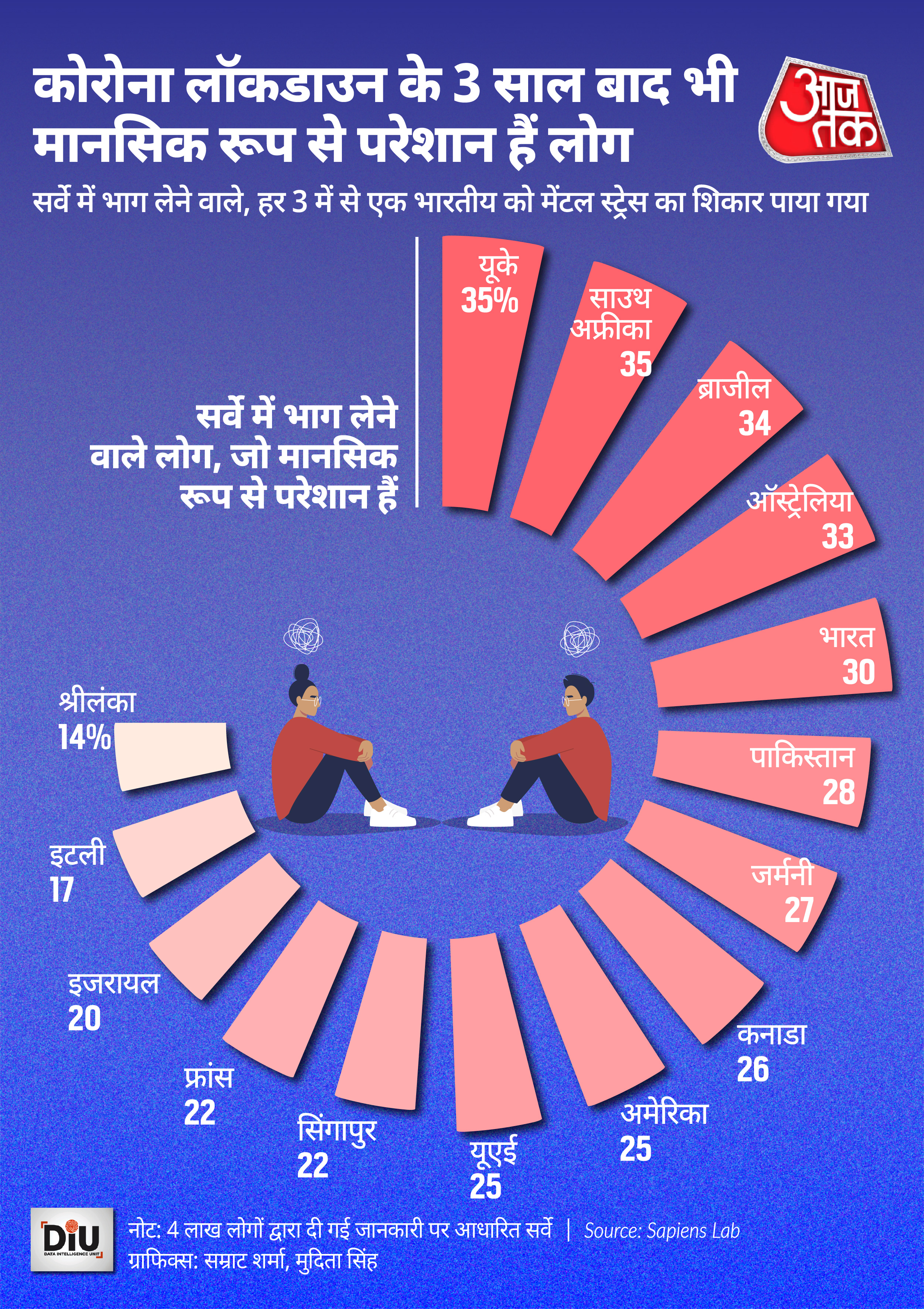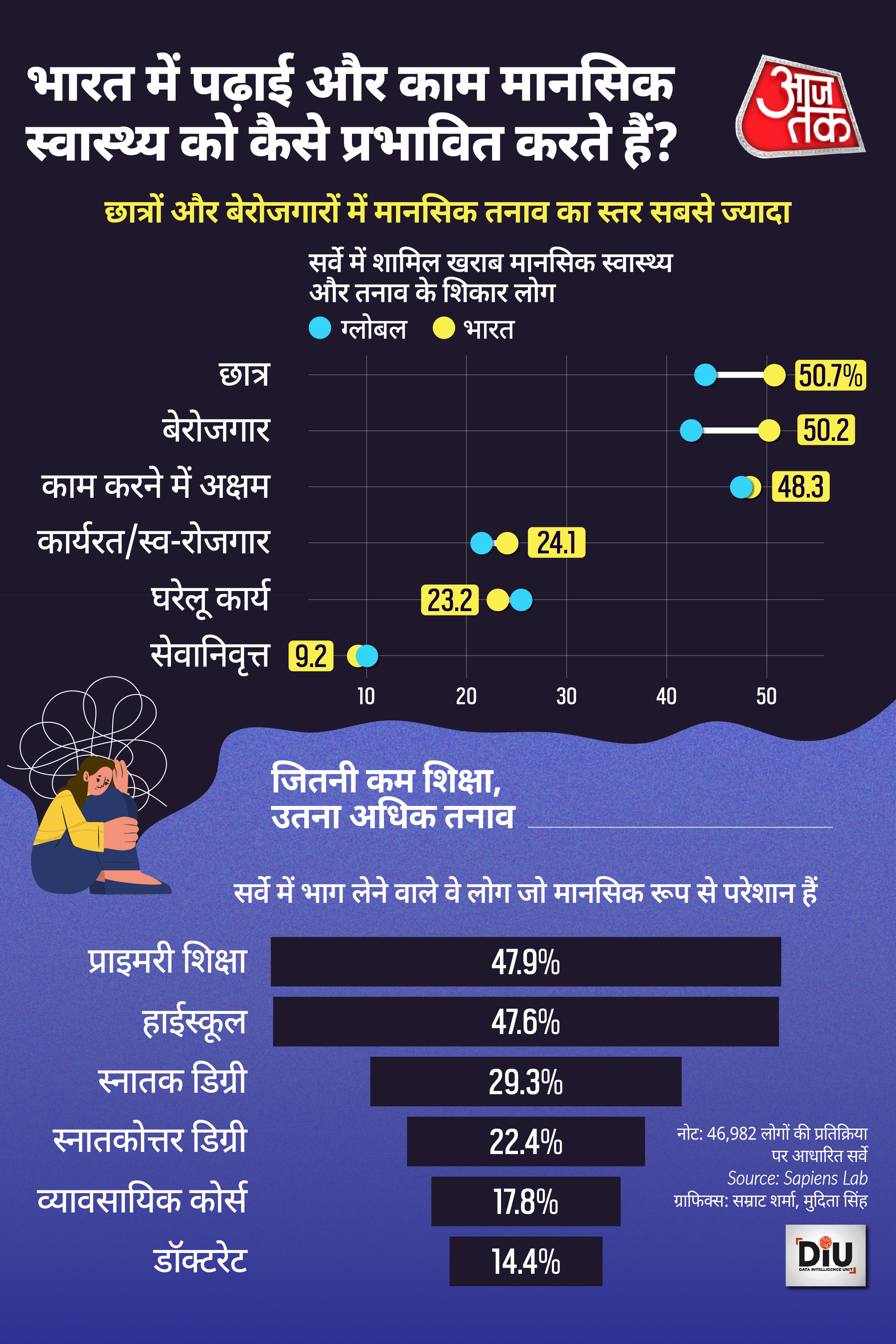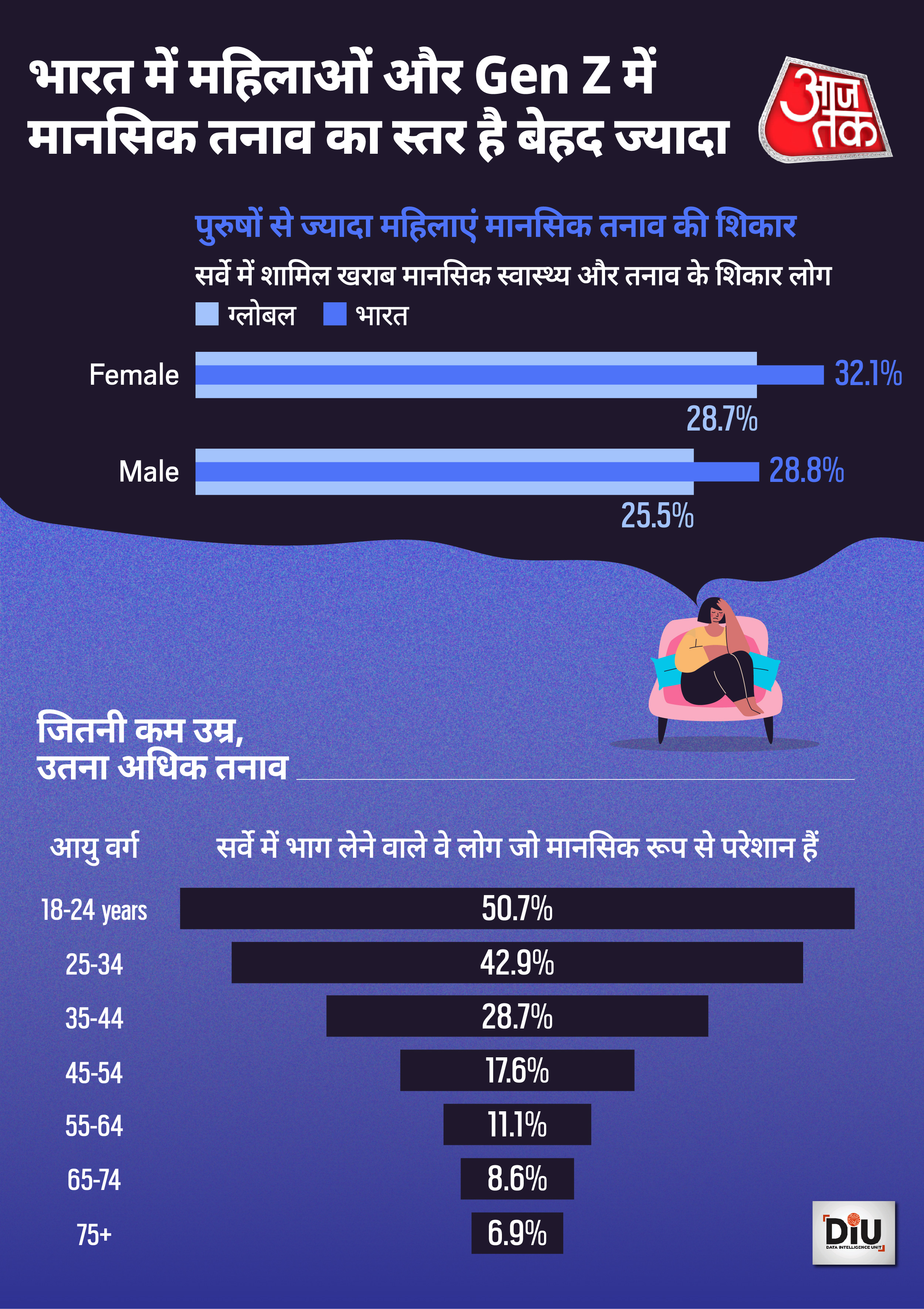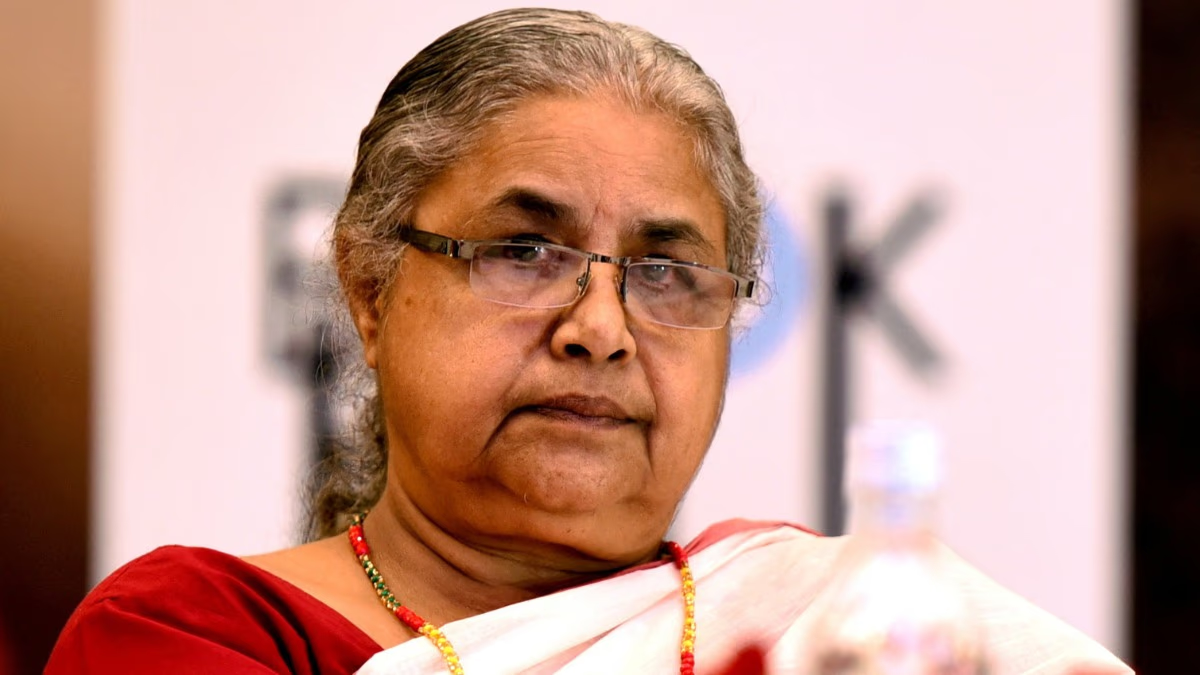The COVID-19 crisis, which emerged from the coronavirus, caused significant loss of life around the world. The pandemic forced people, including in India, to remain housebound for months. Even four years after being declared a public health emergency of international concern, the extensive impact of what medical professionals call 'Long COVID' remains largely unknown. And it is not just the physical effects that are worrying; the pandemic has left a deep scar on the mental health of many.
In the 2023 Global Report on Mental States published by Sapien Lab, authored by Tara Thiagarajan and Jennifer Newson, we find that while many hoped that the end of COVID-19 would bring a return to normalcy, mental health recovery has not been the case for everyone.

Source: aajtak
In a survey involving over 400,000 individuals across 71 countries (including 46,982 in India), it was found that 30.4% of Indians are mentally distressed and struggling with poor mental health, while the global figure stands at 27.1%. Countries like the UK, South Africa, Brazil, and Australia have higher rates of mental distress than India. In contrast, Canada, the USA, Singapore, France, Israel, Italy, and Sri Lanka report better mental health statistics.
The report suggests that the pandemic has induced several persistent changes, such as an increase in plastic use which could be linked to mental health issues due to chemicals like phthalates found in plastics. Furthermore, the report highlights that using smartphones from a young age and consuming ultra-processed foods have worsened mental health problems, especially amongst those under 35.

Source: aajtak
In India, more than half (50.7%) of people aged 18-24 are struggling with mental health issues. The survey shows a gender discrepancy in mental distress, with women being more affected than men. Globally, 28.7% of women are grappling with mental health problems, higher than the average for men.

Source: aajtak
Education appears to have a profound link with mental health. The higher the educational attainment, the lower the stress levels, and vice versa. In India, nearly 48% of individuals with only primary education are battling mental health problems, whereas only 14.4% with a PhD degree face such issues.
The study also touches on the influence of occupation on mental health. Retirees and homemakers are likely to have better mental well-being compared to students and the unemployed, over 50% of whom are suffering from mental health issues.




